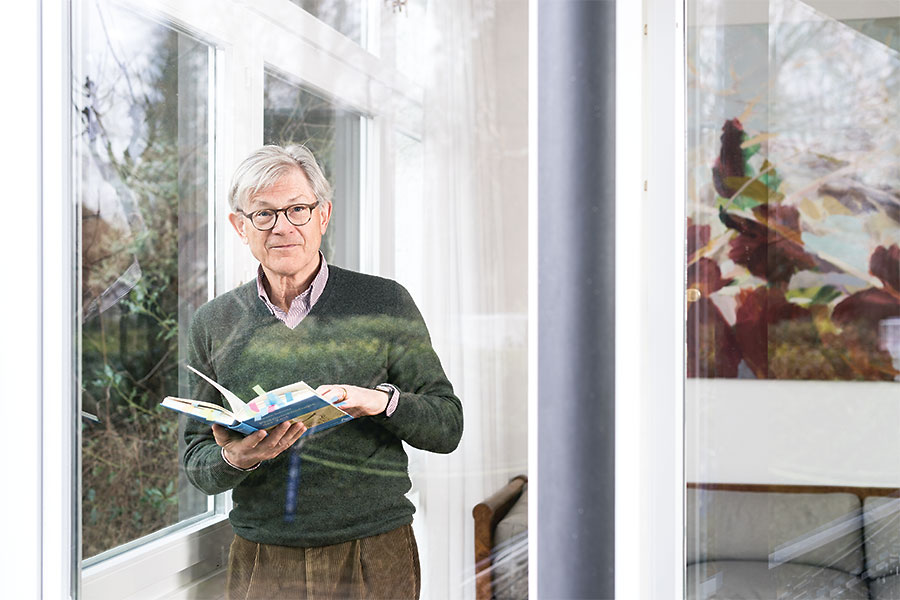Hermann Schmitz’s “Phänomenologie der Zeit”
Text: Wolf Langewitz
My book: Wolf Langewitz, Professor of Medicine, recommends “Phänomenologie der Zeit” by the German Philosopher Hermann Schmitz.
This fascinating book suggests ideas I would not have thought of myself (or not in the same way). Although I re-read it continually, I never find myself getting bored. The subjects it deals with are not exactly mundane. Why should I be interested in the difference between an “attribute” and an “Existenz-Inductivum”? Because I wonder how much of the man who began his studies in 1971 is still present in the one writing this today. “Past” and “present” cannot be distinctive characteristics of my person; such characteristics would be “attributes” proper to only that one person (or thing). Indicators of time or place are only Existenz-Inductiva “die für ihre Identität als diese Sache belanglos sind” (that are irrelevant to its identity as that thing). Thus a thing can be the same in the past and the present “weil Gegenwart und Vergangenheit keine Attribute sind” (as present and past are not “attributes”).
In my professional life, I was often struck by how, when faced with bad news such as the failure of chemotherapy for cancer, people did not abandon all hope, but instead managed to remain optimistic. Their accounts of moments in which hopes are dashed are often dramatic (“I was devastated!”), suggest that they lost all sense of time (“I don’t know how long I was with the doctor”) or signal the start of a new era (“When we came out of the surgery, the world had changed”). The new breaks in, “(das) die gleitende Dauer des Dahinlebens und Dahinwährens zerreisst und ins Vorbeisein verabschiedet (…) Die Person sinkt dann in ihr Hier und Jetzt ein, die mit einander und mit ihr verschmelzen, und die Wirklichkeit packt den Betroffenen unmittelbar, ohne ihm Spielraum für Differenzierung zu lassen; alles schrumpft zur Eindeutigkeit auf die Spitze des Plötzlichen zusammen” (disrupting the flow of everyday life and consigning it to the past (…) The person becomes immersed in their here and now, which become one with each other and with the person affected, and reality takes immediate hold of them, without allowing them scope for differentiation; in a flash, everything is reduced to black and white). What remains unclear is where to look for fresh hope. The thought that there is an element of permanence that this sudden irruption cannot destroy completely, but leaves untouched, is helpful here. That is exactly what people mean when they say, “But life goes on!”
Wolf Langewitz is Emeritus Professor of Medicine and a lecturer in Psychosomatics at the University of Basel. His main area of interest, besides phenomenology, is communication with patients.
More articles in the current issue of UNI NOVA.

